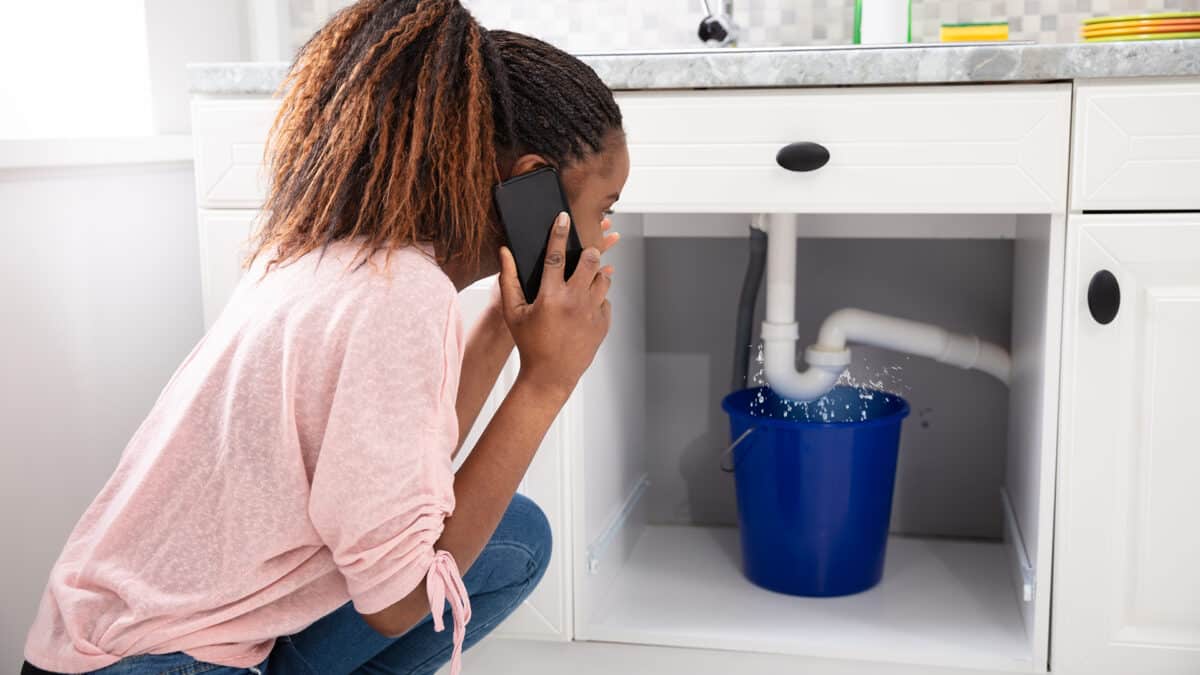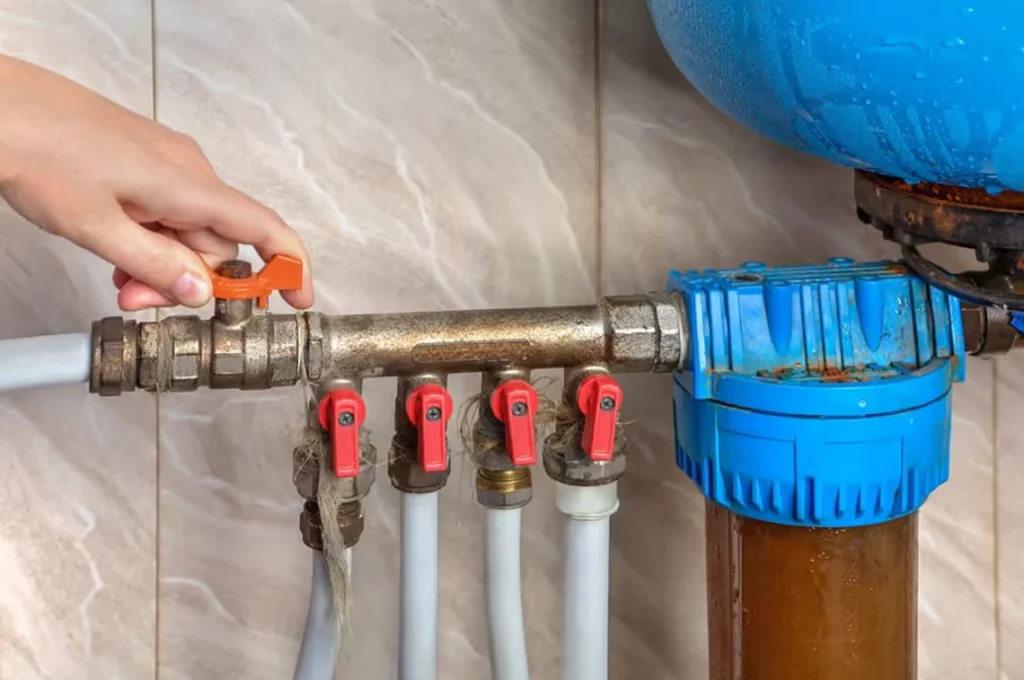Immediate Tips for Critical Situations Until A Plumber Arrives
Immediate Tips for Critical Situations Until A Plumber Arrives
Blog Article
They are making several great points about What to Do During a Plumbing Emergency as a whole in the content directly below.

Pipes emergency situations can strike at any time, triggering tension and potential damage to your home. Whether it's a burst pipe, a stopped up drain, or a leaking tap, recognizing just how to manage the situation until a professional plumbing gets here can conserve you from further problems. This post provides necessary emergency pipes tips to help you alleviate damages and reclaim control during a plumbing dilemma.
Shut off the Water
The initial step in any kind of pipes emergency is to shut off the supply of water. For local concerns, such as a dripping tap or toilet, turn off the valve near the component. When it comes to a significant leakage or burst pipe, find your home's main water shut-off shutoff and transform it off promptly. Understanding the place of these shutoffs ahead of time can save important time throughout an emergency situation.
Turn off Your Water Heater
In particular emergency situations, such as a ruptured pipeline, it's a good idea to shut off your water heater. This protects against getting too hot or damages to the system when water stops moving. Switch off the power supply to the hot water heater (electric or gas) and let it cool down to stay clear of prospective risks.
Temporarily Quit a Burst Pipe
A ruptured pipeline can lead to considerable water damages in mins. To minimize the problem:
Call a professional plumbing technician right away to address the trouble permanently.
Have an Emergency Situation Plumbing Package
Prepare a fundamental pipes emergency situation kit to take care of minor concerns efficiently. Your kit must include:
Having these tools handy can make a significant distinction in your ability to handle emergencies.
Unclog Drains Securely.
A blocked drainpipe can be an aggravating and unpleasant issue. Below's how to tackle it:.
If these techniques don't work, stay clear of using too much force, as it might worsen the obstruction.
Take Care Of Overflowing Toilets.
An overflowing commode can cause instant disorder. Here's what you must do:.
Address Little Leakages with Short-lived Fixes.
Small leaks can quickly end up being substantial problems if left uncontrolled. Make use of these short-term repairs till specialist help gets here:.
While these repairs aren't permanent, they can help minimize water loss and damage.
Handle Frozen Pipeline Thoroughly.
In colder climates, frozen pipes are a common emergency. If you think a frozen pipeline:.
Know When to Call an Expert.
While quick fixes can help momentarily, specific plumbing concerns need immediate specialist interest. Call a plumbing if:.
Quickly contacting an expert ensures the concern is fixed correctly and stops further difficulties.
Avoid Additional Damage.
Taking quick action to reduce damages can save you time and money in the future. Below's exactly how:.
Final thought.
Pipes emergency situations can be overwhelming, however with the appropriate knowledge and tools, you can handle the scenario effectively up until aid shows up. By switching off the water, dealing with tiny leaks, and utilizing short-term fixes, you can minimize damage and keep your home safe. Remember, these suggestions are momentary remedies; constantly consult a certified plumbing technician to manage the origin of the trouble. Prep work and fast reasoning are your best allies in any plumbing emergency.
8 Helpful Tips for Managing Plumbing Emergencies at Home
If your plumbing system hasn’t failed once, wait for it because almost everyone has a story to tell. Sometimes, it could be simple emergencies such as a leaking pipe, a blocked cistern, or even a big burst pipe. In situations like this, you need to have some handy tips to save you some money and from possible damages.
Take care of minor issues early.
Sometimes, you could have avoided an emergency by taking proactive measures while it was still early. Some major plumbing emergencies can be a result of an ignored minor issue. We recommend that you have items like plumbing tapes and other related items. A plumbing tape can allow you to manage minor leaks before the plumber arrives.
Cut off the water supply.
This tip is essential in almost any type of leakage problem. For problems like minor leakages in the toilet or kitchen, turn off the supply that takes water to the affected pipes. If the leakage is a major pipe, you must shut off the supply valve to the entire building. This will help you avoid flooding your home and neighbors if you share a flat.
Know your plumbing system
Folks typically move into a new apartment without understanding the water supply around the building. This can prove disastrous if a water emergency arises and the plumber is far away. The previous tip will prove useless if you don’t practice this one. More importantly, know where your water shut-off valve is located – you’ll need that knowledge to prevent potential home floods.
Have some common handy tools
There are lots of plumbing emergencies that you can handle without hiring a plumber. That’s why you must keep some tools available always. Some tools that you can use to fix simple plumbing emergencies easily include plumbing tapes, screwdrivers, thread seal tapes, plungers, pliers, tape measures, and rubber gloves.
Insulate your pipes from cold
You’ll save yourself from many plumbing expenses if you protect your water pipes from the cold. This is because of the harmful effects that cold weather can have on your pipes. During winter, your pipes can burst from being overly expected to freezing temperatures. So, make sure insulators are there to keep the pipes working correctly.
Avoid practices that will clog your toilet.
Many people indulge in practices that can damage the plumbing system of the entire building. One of these is when they use their toilet to dispose-off garbage. They flush all kinds of things, such as paper towels, bandages, hairs, female sanitary products, etc., down the toilet. This will block your toilet in the long run, incurring unnecessary expenditures. Dump such waste in the trash instead.
Check your dials regularly.
Sometimes, there could be leakages in your home without noticing them in time. So, constantly monitor your water meter dial. If the dial is reading when there is nobody using water, this is an indicator that there is leaking. Check for leaks immediately. Call a plumber as soon as possible if you can’t find any.
https://www.constructionplacements.com/8-helpful-tips-for-managing-plumbing-emergencies-at-home/

I was made aware of that write-up on What to Do During a Plumbing Emergency through a friend on our other web page. Kindly take the opportunity to promote this page if you enjoyed it. I thank you for your readership.
Website Report this page